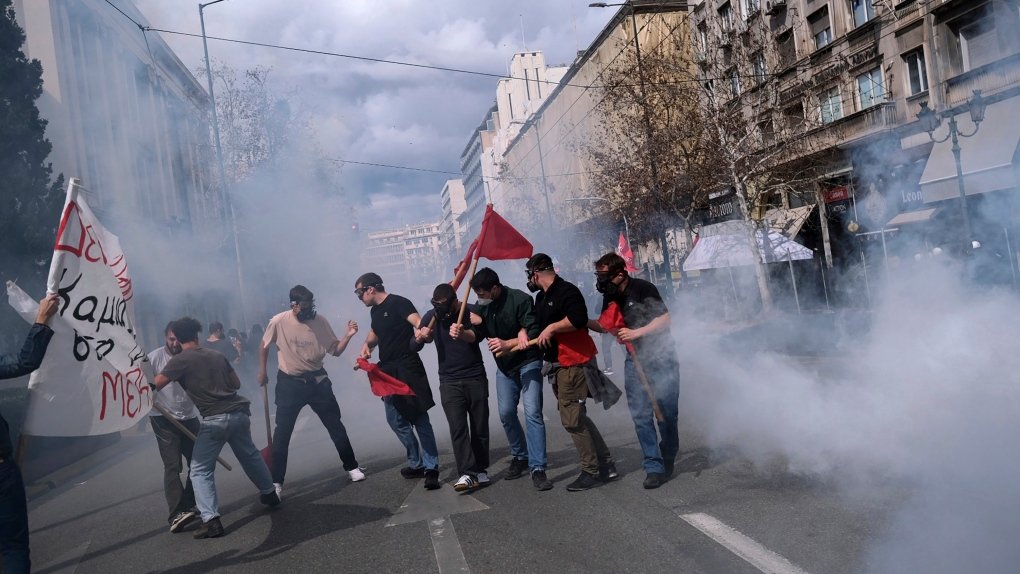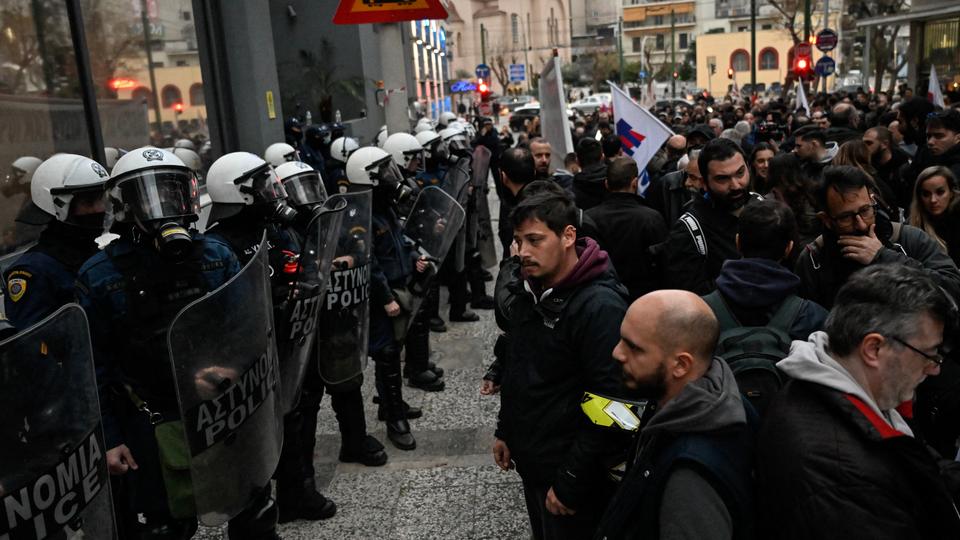A Larissa Stationmaster is accused of obstructing traffic and endangering life and the train accident that resulted in at least 57 fatalities, a Greek railway worker has been imprisoned pending trial.
On Sunday, as tensions broke out between police and demonstrators in the Greek city of Athens, the 59-year-old man was taken into custody.
Following the head-on accident between a passenger train and a freight carrier on the Athens-Thessaloniki route late in the evening of February 28, thousands of people demonstrated in the city in support of tighter safety regulations.

The stationmaster in the center city of Larissa, where the train accident occurred, was the railroad worker who, by Greek law, cannot be named.
He is accused of endangering life and interfering with transportation on a number of counts.
The eKathimerini newspaper reports that a life sentence could be imposed for the crime of transport safety.
He was in charge of central Greece’s safety for around 20 crucial minutes, according to his attorney Stefanos Pantzartzidis.
Pantzartzidis had previously claimed that while his client was distraught and had taken responsibility “proportionate to him,” other variables were also in play. Nevertheless, he stopped short of going into further detail.
The country’s rail network, according to railway personnel, has been deteriorating due to cost-cutting and underinvestment as a result of Greece’s crippling debt crisis from 2010 to 2018.

The catastrophe was attributed to human error, although Prime Minister Kyriakos Mitsotakis recognized that years of neglect could have played a role. “As prime minister, I owe everyone an apology, but the victims’ families most of all,” he wrote on his Facebook page. “Justice will swiftly look into the catastrophe and identify those responsible.”
The unions representing railroad workers claim that because a remote surveillance and signaling system was late in being supplied, safety systems throughout the rail network have been inadequate for years. They have urged the government to offer a timeline for putting safety standards in place.
According to Mitsotakis, “it would have been, in practice, unthinkable for the accident to happen” if a remote system had been in place.
Some 10,000 people gathered on Sunday in Athens by the wide esplanade in front of the parliament to show support for the victims and demand higher safety standards for the rail system.
Protesters yelled, “That crime won’t be forgotten,” as they let free of black balloons into the sky.
“Their policies cost human lives,” read a sign.
Students who were returning after a weekend break made up a large portion of the crash casualties.
Among those slain on the passenger train were at least nine young persons who were Aristotle University students in Thessaloniki.
Later, the demonstrations in Athens turned violent, with police charging protesters of torching trash cans and hurling Molotov cocktails. To clear the square, police reacted by launching tear gas and stun grenades.
Five people were arrested while seven officers reportedly suffered injuries.




